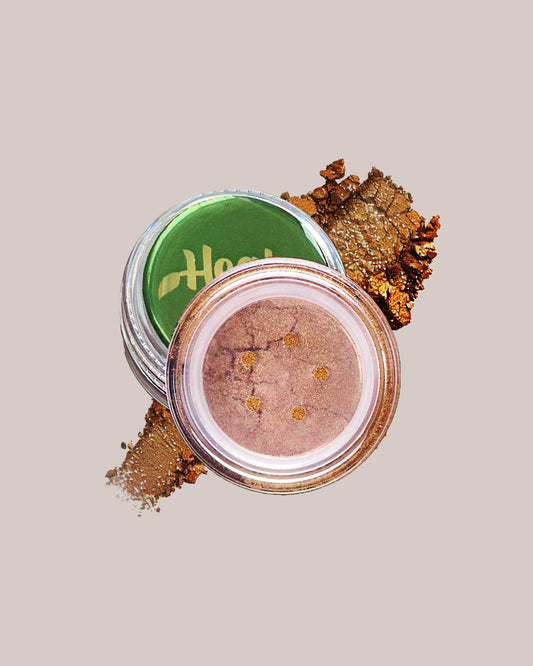Water Fasting: A Comprehensive Guide to the Timeline, Tips, and Day-by-Day Process
NOTE: PLEASE ENSURE YOU READ THE CAVEATS AND DISCLAIMERS AT THE BOTTOM OF THIS ARTICLE.
Water fasting, also known as a water cleanse, is a type of fasting in which an individual consumes only water for a set period of time. While fasting has been practiced for centuries, water fasting has gained popularity in recent years due to its potential health benefits. This article will provide a comprehensive guide to water fasting, including a timeline, day-by-day guide, tips for success, potential risks and side effects, medical insights and studies, and how to safely break a water fast.
Understanding Water Fasting is essential before embarking on this type of fast. Water fasting is a type of intermittent fasting that involves abstaining from all food and beverages except water for a set period of time. The length of a water fast can range from 24 hours to several weeks, depending on an individual's goals and health status. Water fasting is not recommended for everyone and should only be done under the guidance of a healthcare professional.
Key Takeaways
- Water fasting is a type of fasting in which an individual consumes only water for a set period of time.
- Understanding water fasting is essential before embarking on this type of fast.
- Water fasting has potential health benefits but should only be done under the guidance of a healthcare professional.
Understanding Water Fasting
Water fasting is a type of fasting that involves consuming only water for a set period of time. It is a popular practice for individuals who want to detoxify their bodies, lose weight, or improve their overall health. However, it is important to understand the risks and benefits of water fasting before attempting it.
During water fasting, the body goes into a state of ketosis, which means it starts burning fat for energy instead of glucose. This can lead to rapid weight loss, but it can also cause side effects such as fatigue, dizziness, and headaches. It is important to consult with a healthcare professional before attempting water fasting, especially if you have any underlying health conditions.
Water fasting can last anywhere from a few days to several weeks, depending on the individual's goals and health status. It is recommended to start with shorter fasts and gradually increase the duration as your body adjusts. It is also important to break the fast gradually by consuming small amounts of easily digestible foods, such as fruits and vegetables.
Some tips for a successful water fast include staying hydrated by drinking plenty of water, getting enough rest and sleep, and avoiding strenuous physical activity. It is also important to listen to your body and stop the fast if you experience any severe side effects.
In conclusion, water fasting can be a beneficial practice for some individuals, but it is important to approach it with caution and under the guidance of a healthcare professional. It is not recommended for everyone, especially those with underlying health conditions.
Benefits of Water Fasting
Water fasting has been gaining popularity as a way to improve overall health and wellness. Here are some of the benefits of water fasting:
Weight Loss
Water fasting can help individuals lose weight quickly. During a water fast, the body enters a state of ketosis, which means that it begins to burn stored fat for energy. This can result in rapid weight loss, especially in the first few days of the fast.
Detoxification
Water fasting can help the body eliminate toxins and impurities. When the body does not have to digest food, it can focus on repairing and rejuvenating itself. This can lead to improved liver and kidney function, as well as clearer skin and improved digestion.
Improved Mental Clarity
Many people report improved mental clarity and focus during a water fast. This may be due to the fact that the body is not using energy to digest food, allowing more energy to be directed towards the brain. Some people also report feeling more peaceful and calm during a fast.
Reduced Inflammation
Water fasting has been shown to reduce inflammation in the body. Chronic inflammation has been linked to a variety of health problems, including heart disease, diabetes, and cancer.
Improved Immune Function
Water fasting can help improve immune function by stimulating the production of white blood cells. This can help the body fight off infections and diseases more effectively.
Overall, water fasting can be a powerful tool for improving health and well-being. However, it is important to approach it with caution and under the guidance of a healthcare professional.
Water Fasting Timeline
Water fasting is a popular method of detoxification and weight loss that involves abstaining from all food and drink except water for a set period of time. The following is a general timeline of what to expect during a water fast.
Preparation Phase
Before beginning a water fast, it is important to prepare the body for the upcoming period of fasting. This can include gradually reducing food intake in the days leading up to the fast and increasing water consumption to ensure the body is properly hydrated.
Water Fasting Phase
During the water fasting phase, the body will begin to use stored energy reserves, such as fat, for fuel. This can lead to weight loss and other health benefits, such as improved digestion and increased mental clarity. However, it is important to listen to the body and break the fast if any adverse symptoms, such as dizziness or weakness, occur.
Day-by-day, the body will continue to adjust to the lack of food and drink, and may experience symptoms such as headaches, fatigue, and nausea. It is important to stay hydrated and get plenty of rest during this time.
Post-Fasting Phase
After the water fast is completed, it is important to gradually reintroduce food back into the diet to avoid digestive issues. This can include starting with small, easily digestible meals and gradually increasing portion sizes over several days.
Overall, water fasting can be a beneficial practice for some individuals, but it is important to consult with a healthcare professional before beginning any fasting regimen.
Day-by-Day Guide to Water Fasting
Water fasting can be a challenging experience, but with the right mindset and preparation, it can also be a rewarding one. Here is a day-by-day guide to help you navigate through your water fasting journey:
Day 1
On the first day of water fasting, it is normal to feel hungry and experience cravings. It is important to stay hydrated by drinking plenty of water and herbal tea to help alleviate hunger pangs. Rest and relaxation are also recommended to help conserve energy.
Day 2-3
During days 2-3, the body begins to transition into a state of ketosis, where it starts to burn stored fat for energy. This can result in feelings of weakness and fatigue, so it is important to continue to rest and stay hydrated. Some people may experience headaches or dizziness, which can be alleviated by drinking more water and getting fresh air.
Day 4-5
By day 4-5, the body has fully entered a state of ketosis, and hunger pangs may subside. Energy levels may also increase, and mental clarity may improve. It is important to continue to drink plenty of water and rest as needed.
Day 6-7
During days 6-7, the body may start to detoxify, which can result in symptoms such as bad breath, body odor, or skin breakouts. This is a normal part of the process and should subside after a few days. It is important to continue to stay hydrated and rest as needed.
Day 8-10
By days 8-10, the body may start to adapt to the fasting state, and some people may experience a sense of euphoria or increased mental clarity. It is important to continue to listen to your body and rest as needed. Gradually reintroducing food after the fast is complete is recommended to avoid digestive issues.
Remember, water fasting should only be done under the guidance of a healthcare professional, and it is not recommended for everyone. It is important to listen to your body and stop the fast if you experience any severe symptoms or discomfort.
Tips for Successful Water Fasting
Water fasting can be a challenging experience, but it can also be incredibly rewarding. Here are some tips to help you have a successful water fasting experience:
1. Prepare Your Mind and Body
Before starting a water fast, it's important to prepare yourself mentally and physically. This means gradually reducing your intake of caffeine, alcohol, and processed foods in the days leading up to the fast. It's also a good idea to talk to your doctor before starting a water fast, especially if you have any underlying health conditions.
2. Stay Hydrated
Drinking enough water is essential during a water fast. It's recommended to drink at least 8-10 glasses of water per day to stay hydrated. You can also drink herbal tea or add a pinch of salt to your water to help replenish electrolytes.
3. Listen to Your Body
During a water fast, it's important to listen to your body and take things slow. If you feel lightheaded or dizzy, it's a sign that you need to break your fast. It's also important to avoid strenuous exercise and get plenty of rest.
4. Break Your Fast Slowly
When it's time to break your fast, it's important to do so slowly and carefully. Start with small amounts of easily digestible foods like fruits and vegetables, and gradually introduce more complex foods over several days. This will help prevent digestive issues and allow your body to adjust to regular eating again.
5. Stay Positive
Water fasting can be a challenging experience, but staying positive can make all the difference. Surround yourself with supportive friends and family, and focus on the benefits of the fast, such as improved digestion, increased mental clarity, and weight loss.
Potential Risks and Side Effects
Short-Term Side Effects
Water fasting can cause short-term side effects, especially during the first few days of the fast. Some of the common short-term side effects include:
- Headaches
- Dizziness
- Fatigue
- Nausea
- Constipation
- Diarrhea
- Muscle cramps
- Insomnia
These side effects are usually mild and go away within a few days. However, in some cases, they can be severe and may require medical attention. It is important to monitor your body and consult a healthcare professional if you experience any severe side effects.
Long-Term Side Effects
Water fasting can also have long-term side effects if it is not done properly. Some of the potential long-term side effects include:
- Nutritional deficiencies
- Muscle loss
- Weakened immune system
- Dehydration
- Electrolyte imbalances
- Gallstones
- Kidney stones
To minimize the risk of long-term side effects, it is important to follow a balanced diet and stay hydrated after the fast. It is also important to consult a healthcare professional before starting a water fast, especially if you have any underlying health conditions or are taking any medications.
In conclusion, while water fasting can have potential health benefits, it is important to be aware of the potential risks and side effects. By following a balanced diet, staying hydrated, and consulting a healthcare professional, you can minimize the risk of side effects and reap the benefits of water fasting.
Medical Insights and Studies
Water fasting has been studied extensively by medical professionals, and there is a growing body of research on the topic. While some studies suggest that water fasting may have health benefits, it is important to note that fasting should only be undertaken under the guidance of a healthcare professional.
One study published in the journal "Cell Stem Cell" found that fasting for 48 to 72 hours can regenerate the immune system, leading to a reduction in the risk of cancer and other diseases. Another study published in "The American Journal of Cardiology" found that fasting can lower blood pressure and reduce the risk of heart disease.
However, it is important to note that water fasting can also have negative effects on the body, particularly if it is not done correctly. For example, fasting can lead to dehydration, electrolyte imbalances, and low blood sugar levels.
To minimize the risks associated with water fasting, it is important to stay hydrated and to monitor your body's responses to the fast. It is also important to break the fast gradually, starting with small amounts of food and gradually increasing the amount over several days.
Overall, while there is some evidence to suggest that water fasting may have health benefits, it is important to approach fasting with caution and to seek guidance from a healthcare professional before embarking on a fast.
How to Safely Break a Water Fast
Breaking a water fast is just as important as the fast itself. The body has been in a state of rest and repair, and it needs to be reintroduced to food gradually to avoid any adverse effects. Here are some tips for safely breaking a water fast:
Start with small portions: Begin with small portions of easily digestible foods such as fruit or vegetable juices. Avoid solid foods for the first few days.
Introduce solid foods gradually: After a few days of consuming juices, start introducing solid foods in small portions. Begin with easily digestible foods like soups, broths, and steamed vegetables.
Chew food thoroughly: Chewing food thoroughly helps the digestive system to break down the food more easily, making it easier to digest.
Avoid processed foods: During the breaking period, avoid processed foods, sugary drinks, and caffeine. Instead, focus on nutrient-dense foods that are easy to digest.
Stay hydrated: Continue to drink plenty of water during the breaking period to help flush out any toxins that may have accumulated during the fast.
Listen to your body: Pay attention to how your body responds to different foods. If you experience any discomfort or digestive issues, adjust your diet accordingly.
Breaking a water fast can be challenging, but following these tips can help ensure a safe and smooth transition back to regular eating.
Caveats and Precautions
Water fasting can have potential risks and side effects, so it is important to take precautions and consult with a healthcare professional before attempting it. Here are some caveats to keep in mind:
By taking these precautions and being aware of potential risks, individuals can safely and effectively incorporate water fasting into their health and wellness routine.
Frequently Asked Questions
What are the benefits of water fasting?
Water fasting has been found to have numerous benefits, including weight loss, improved insulin sensitivity, and reduced inflammation. Other benefits may include improved mental clarity and increased energy levels.
How long should a water fast last?
The length of a water fast can vary depending on individual goals and health status. It is generally recommended to start with a shorter fast, such as 24-48 hours, and gradually increase the duration. Extended fasts of 3-7 days or more may be appropriate for some individuals, but it is important to consult with a healthcare provider before attempting a prolonged fast.
What are the potential side effects of water fasting?
Water fasting can lead to side effects such as fatigue, headaches, dizziness, and dehydration. It is important to stay hydrated and listen to your body during a fast. Individuals with certain medical conditions or who are pregnant or breastfeeding should not attempt a water fast without consulting with a healthcare provider.
What are some tips for a successful water fast?
Some tips for a successful water fast include staying hydrated, getting plenty of rest, avoiding strenuous activities, and consuming nutrient-rich foods before and after the fast. It is also important to have a support system and to listen to your body's needs.
Can water fasting lead to weight loss?
Yes, water fasting can lead to weight loss. However, it is important to maintain a healthy diet and lifestyle after the fast to prevent regaining the lost weight.
Is it safe to exercise during a water fast?
It is generally not recommended to engage in strenuous exercise during a water fast, as the body may not have enough energy to support physical activity. Light exercise such as walking or yoga may be appropriate for some individuals, but it is important to listen to your body and consult with a healthcare provider before attempting any exercise during a fast.
Disclaimer: Important Information Regarding Water Fasting
Before engaging in water fasting, also known as a water cleanse, it is crucial to fully understand the potential risks and benefits associated with this practice. While water fasting has gained popularity due to its reported health benefits, it is not suitable for everyone, and it should only be undertaken under the supervision of a qualified healthcare professional. This comprehensive guide provides insights into the timeline, tips, and day-by-day process of water fasting, but it is essential to consider the following caveats and precautions:
Not Recommended for Everyone:
- Water fasting is not recommended for individuals with a history of disordered eating or eating disorders, as it may trigger unhealthy behaviors and thoughts.
Pregnancy and Breastfeeding:
- Pregnant or breastfeeding women should avoid water fasting, as it can impact the health of both the mother and the baby.
Medical Conditions:
- Individuals with certain medical conditions, such as diabetes or kidney disease, should not attempt water fasting without consulting their healthcare provider, as it may exacerbate their condition.
Dehydration Risk:
- Water fasting can lead to dehydration. It is imperative to stay well-hydrated during the fast, and adding a small amount of salt to water can help maintain electrolyte balance.
Monitoring Symptoms:
- During the initial days of water fasting, some individuals may experience symptoms such as headaches, dizziness, and fatigue. While these symptoms often subside, persistent or worsening symptoms may indicate the need to break the fast.
Gradual Reintroduction of Food:
- Breaking the fast too quickly or with the wrong foods can cause digestive issues and discomfort. It is essential to reintroduce food gradually, starting with small, easily digestible meals, to allow the body to readjust.
Individual Variability:
- Individuals may react differently to water fasting. It is crucial to listen to the body and be aware of personal health conditions and limitations.
Consultation with Healthcare Professional:
- Before embarking on a water fast, individuals should consult with a qualified healthcare professional to assess their suitability for this practice and receive personalized guidance.
The benefits of water fasting, including weight loss, improved insulin sensitivity, and reduced inflammation, should be weighed against potential risks. The information provided in this guide is for informational purposes only and is not a substitute for professional medical advice, diagnosis, or treatment. Individuals are urged to seek the guidance of a qualified healthcare professional to ensure their safety and well-being during the water fasting process.

















